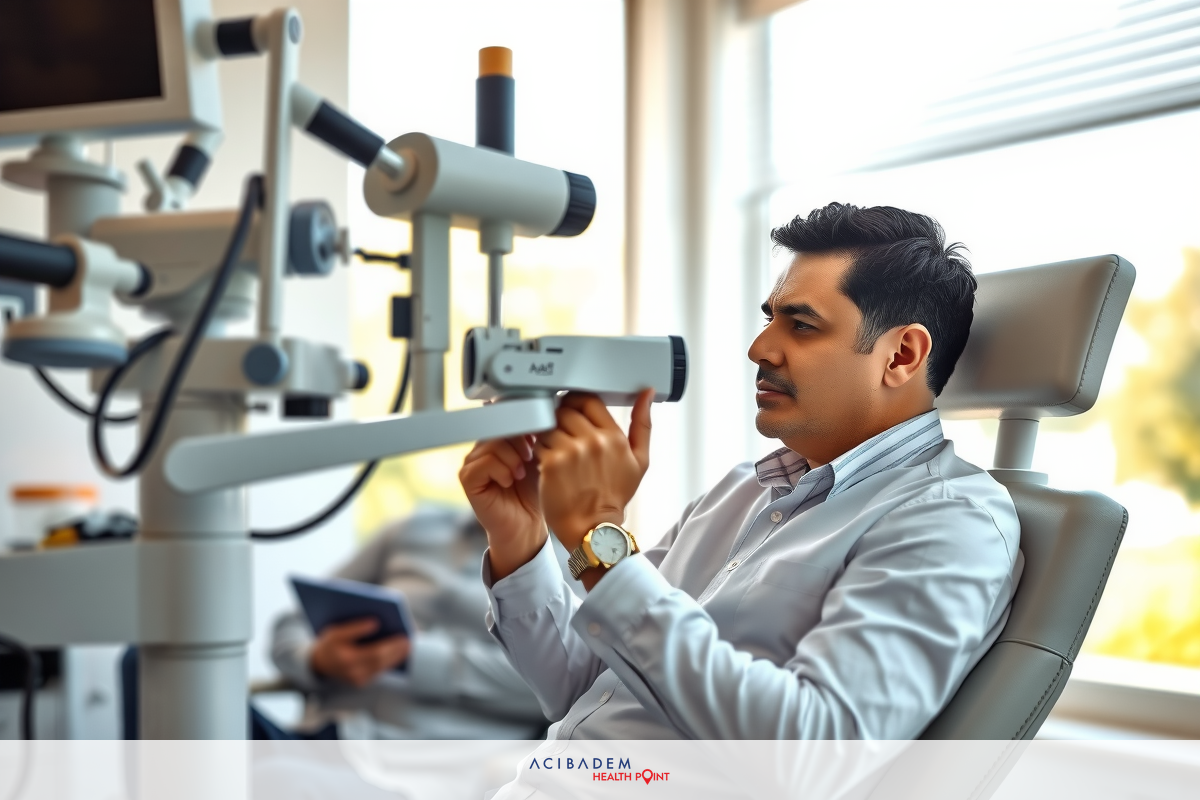What Do They Do in Laser Eye Surgery
What Do They Do in Laser Eye Surgery Laser eye surgery stands at the forefront of modern vision correction methods, boasting multiple benefits and a promising recovery rate. This sophisticated process merges advanced technology with intricate optical knowledge, leading to enhanced vision quality. By reshaping your cornea using precision lasers, this method offers an opportunity for many people struggling with their eyeglasses or contact lenses.
Considering laser eye surgery entails grasping key aspects: the procedure itself, its numerous advantages downtime post-operation and risks associated. Each element bears weight in making an informed decision about pursuing this avenue for potential improved sight. With these insights under your belt, readiness awaits on both mental and emotional fronts as you contemplate undergoing laser eye surgery.
The Procedure
The laser eye procedure is surprisingly quick and generally painless, often lasting merely minutes. The key objective of this treatment is to modify the shape of the cornea, which in turn aids corrective vision. Local anesthetic eye drops ensure discomfort minimization during proceedings, with special clamps applied to keep eyes open consistently. A precise cut creates a transparent flap on your eye’s surface by utilizing state-of-the art laser technology.
Once gently flipped open by your surgeon, another specialized laser proceeds to execute its duty by reshaping the exposed layer beneath. Vision corrections necessitate delicate subtraction of microscopic tissue pieces from the cornea through these pulsating light beams. After crafting ideal curvature for improved focus, the initial flap repositions itself naturally without requiring stitches or bandages post surgery stage completion. Thus unfolds the symphony that is modern day laser eye surgery – simple yet intricate procedures bearing life altering impacts.
Benefits of Laser Eye Surgery
The primary advantage that laser eye surgery offers is the prospect of enhanced vision. A substantial number of patients will experience drastically improved sight almost immediately post procedure, with further progress expected as they navigate through their designated recovery period. In many cases, complete independence from eyeglasses or contact lenses becomes a newfangled reality for those opting this route.
Laser eye surgery can bare benefits extending beyond mere visual corrections too. Many individuals report an elevation in lifestyle quality and mental health due to this newfound visual freedom. Deprecation of daily nuisances like finding misplaced glasses or managing lens care routines significantly amplifies one’s ease and confidence in tackling day-to-day affairs. Opting for laser eye treatment isn’t just about bringing everything back into focus – it’s about rediscovering life without barriers, living fully unfettered by optical aids.
Risks and Considerations
Despite the promise of improved visual acuity, any surgical procedure like laser eye surgery comes with its set of potential risks. Some patients may experience temporary side effects such as dry eyes, glare, halos around lights or reduced night vision post-procedure. In rare cases, these could evolve into persistent issues that require further intervention. It’s important to discuss any previous ocular history with your surgeon before undergoing this corrective avenue.
Consideration for laser eye surgery should also accommodate personal lifestyle factors and individual health conditions beyond just expected procedural outcomes. Age-related changes in presbyopia or macular degeneration would mean refractive surgeries are not likely beneficial candidates in maintaining optimal
sight over longer durations. Assessment on whether eligibility matches one’s unique circumstances remains

paramount when pondering on diving into the world of optic corrections via precision lasers – all benefits must be weighed accurately against these considerations.
Recovery Process
Recovery from laser eye surgery is generally swift, promising a rapid return to normal activity for many patients, although individual healing times can vary. It’s not uncommon to experience some level of visual blurriness or haziness immediately post-procedure. This usually resolves within a few days as your eyes adapt and heal. Rest and avoidance of strenuous activities are crucial during this stage in order to prevent any exertion that could potentially disturb the nascent fixing process.
Post-operative care routines play an instrumental role nurturing a smooth transition from operation recovery towards clear visage rewards. Users must conscientiously put prescribed medicinal drops into their eyes at regular intervals until complete healing ensues – this counters potential dryness while protecting against infections too. Regular follow-ups with your surgeons will ensure any complications are detected early on thus further enriching success stories arising out of bold steps taken towards corrective vision freedom via the innovative means of laser eye surgery procedures.
Frequently Asked Questions
How long does the laser eye surgery procedure take?
The actual surgery is typically quite quick. Most patients spend about 10 to 15 minutes total for both eyes, and the laser application part lasts less than a minute per eye
Can anyone go for laser eye surgery?
Not everyone can be considered as eligible candidates. Factors including age, ocular health history, prescription stability and corneal thickness needs careful assessment by experienced professionals before qualifying for these procedures.
What should I expect during recovery?
Patients may feel mild discomfort or irritation in their eyes following the treatment which usually subsides shortly after resting. Full recovery durations vary across individuals - consult your doctor on specifics catered towards your unique circumstances post operation.
This article serves informational purposes only and doesn’t constitute any form of medical advice — always consult with an eye care professional for definitive guidance.








